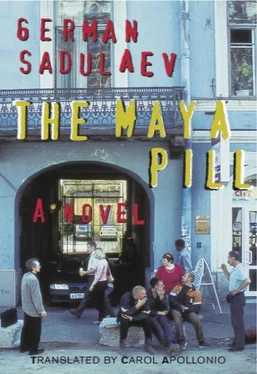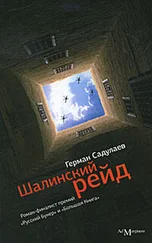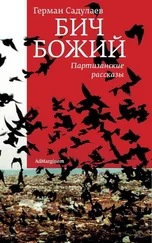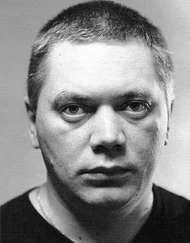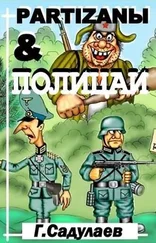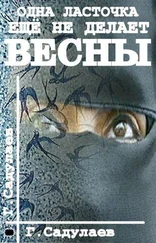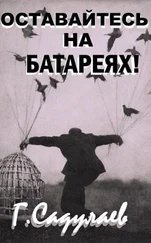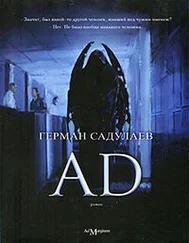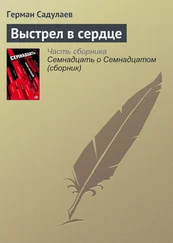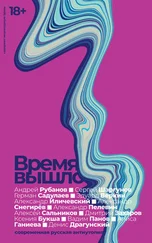The white nights retained their calendar rights; the sun still set late and its whitish light lingered in the pale sky long after the clock indicated darkness. But in this strange time, when night came on, it came suddenly. A dark hood would descend without warning, covering the entire world, blocking out even the stars. And when dawn glimmered early and drove the night away, it left the night even darker in memory.
The village nestled along the banks of the Volkhov River. Maximus drove down the right bank until he reached a hotel on the small town square. The square was deserted. Maximus parked, entered the hotel through a dark doorway, and climbed a stairway with carved wooden banisters to the second floor. The door into the hotel lobby was closed and Maximus pressed the buzzer to summon the desk clerk.
The clerk told him that a room would cost 1,500 rubles, but that there were no vacancies. The rooms were reserved a month in advance: A lot of visitors, tourists as well as pilgrims, were coming to visit the monastery and churches of Staraya Ladoga.
Semipyatnitsky drove on to the very end of the village, then turned and headed back the way he’d come. He took a secondary road and followed it to the monastery gate. The gate was locked and the monastery was dark. In front of the gate was a convenient paved parking area, enough for a few dozen vehicles. A couple of cars drowsed there; around a third, a group of young people had gathered. The car’s windows were open, and its speakers were blaring a song to the entire town—something about a girl, a student, a sweet piece of candy—violating the spiritual grandeur of the place. Maximus spat and drove away in annoyance, retracing his steps.
The second road on the right was narrow and led up a steep hill. On top, in a grassy clearing, stood an old chapel, or maybe it was a church—religious architecture not being one of Maximus’s strong points. A cat, evidently the church’s caretaker, appeared and meowed a loud greeting. Maximus regretted that he hadn’t picked up some smoked fish at the market he’d passed on the way. All he had in the trunk was a milk chocolate bar. The cat demonstrated an admirable lack of fastidiousness and accepted his gift gratefully. She ate the treat, and then, meowing loudly, led Semipyatnitsky on a tour of the grounds, showing him a hill that sloped down to the river and a mowed lawn behind the church. Maximus took a liking to the animal; he had a soft spot for cats anyway, and this one projected an air of reverence and spiritual dignity.
Maximus stroked the vociferous cat one more time, delivered an eloquent and verbose farewell, got in his car, and descended cautiously back to the highway. He was now quite close to the entrance to Staraya Ladoga, with its cupola-shaped hills rising over a bend in the river.
THE KURGANS OF STARAYA LADOGA
Their proper name is mounds, sopki , from the Russian word meaning to pour or pile up… The word kurgan came later; it’s Turkish.
Semipyatnitsky left his car by the side of the road, which was practically deserted except for the occasional vehicle passing by every half hour or so, the great eyes of its headlights blazing as it rounded the curve. He walked out onto the grass and followed a clay path up to the top of one of the bigger mounds. And looked out onto the world.
His breath caught in his chest, his head spun. The grandeur of the landscape that opened out before him blinded and paralyzed him. The Volkhov’s dark, motionless, glossy surface reflected the newly risen moon and stars in the infinite expanse of the sky, making the river itself seem billions of light years deep. Gentle, warm spots of light twinkled from the dachas and cottages on the opposite shore. A light breeze stirred the trees and bushes, like puffs of down on a black swan whose wings rustled, barely audibly, in the summer night.
For a few minutes, maybe more, Maximus couldn’t move, then he sank down onto the grassy earth. He closed his eyes, unable to bear the beauty. And when he opened them again…
Remembering that moment later, Maximus was inclined to explain his vision as a drug flashback of some kind. That can happen. You go for days, weeks, or even months without taking anything, and then suddenly, completely unexpectedly and in the most unlikely time and place, you’re back where you had been back then. Maximus hadn’t taken any of the pink pills that day, but evidently there was enough of the drug left in his system to bring on a hefty hallucination.
When he opened his eyes, Maximus saw the same landscape. But it was also not the same. The Volkhov was broader, the water came up to the very base of the kurgan . The contours of the trees and the lights from the other shore looked different too. But most importantly…
People. Throngs of them, even now, in the middle of the night. A sailboat glided down the river; fishing boats rocked gently near the shores. Sounds wafted up from all directions: people laughing and talking, voices singing, the splash of rigging, the occasional knock of hammer against anvil. Maximus looked first to one side, then to the other, then back again. No hint of pustosh now: All the land was in use. In the town, stone mansions crowded up to the water’s edge, and beyond them wooden buildings, settlements and farmsteads stretching all the way to the horizon. Even the open fields showed signs of human habitation: waves of ripening rye and dark patches in the grass where flocks of livestock grazed. A caravan of ox carts moved along the well-trodden, smooth surface of the road, accompanied by a convoy of horsemen, their swords and armor gleaming in the white light of the moon. Everything was vibrant and alive, and everything was of this place.
Maximus fell onto the grass, roaring with laughter, then leaped to his feet and shouted in what he thought was a booming, resonant voice, though in fact what came from his dry throat was a hoarse croak:
“So this is what you are, O Russian land, your true origin and essence! Not sad wasteland, not pustosh , but fertile, rich Gardarika !”
Saat resumed his life on the steppe in the same place he’d lived before. New people were living there, yes. They had him groom the horses and muck out the corrals, and in exchange they gave him food to eat and mare’s milk to drink. Now and then they would take a whip and give him a beating, for not working hard enough or just because they felt like it. And afterward they would send him away, into the steppe. But why go to the trouble of finding another place? A man always feels most at home and free in the place where he was born and lived most of his life. At home even the switches are sweet, the whippings tender, and hunger is like one of the family.
Where is there to go, anyway? Man is not a bird who can fly away and seek warmth and food in some distant land. If he were a star, he could just twinkle in the sky, high above it all. But Saat was a man. He would go on sending roots deep into his native earth, deeper and deeper with every passing year, until his time came and he would lie down on the ground at last and take his rest. And the land would cover him. Land of his birth, native land.
But a new sorrow befell Khazaria: The Khagan died. You’d think, what difference would that make to an ordinary herdsman? Saat had never even seen the Khagan in person. Maybe the Khagan died a natural death. People of all walks of life die of natural causes. Or maybe he’d outlived his preordained time. That’s what the old women said, whispering, with dull eyes. Or maybe he was done away with, according to custom.
In the old days, when there was a bad harvest, they would take the Khagan out into the fields during the plowing and stab him to death right there, to make grain grow in the next season. And when there was an excess of grain, they would pile up stones and bury the Khagan alive. When the Chechmeks set fires in Itil, they burned the Khagan at the stake. And if their foes triumphed in battle, they would cut the Khagan to pieces with their sabers. Short is the lifespan of the Khagan, from one misfortune to the next. And there is so much misfortune in my homeland; all of our history is woven from it, like a wanderer’s ragged garment, all rips and tears, held together by mere threads.
Читать дальше
